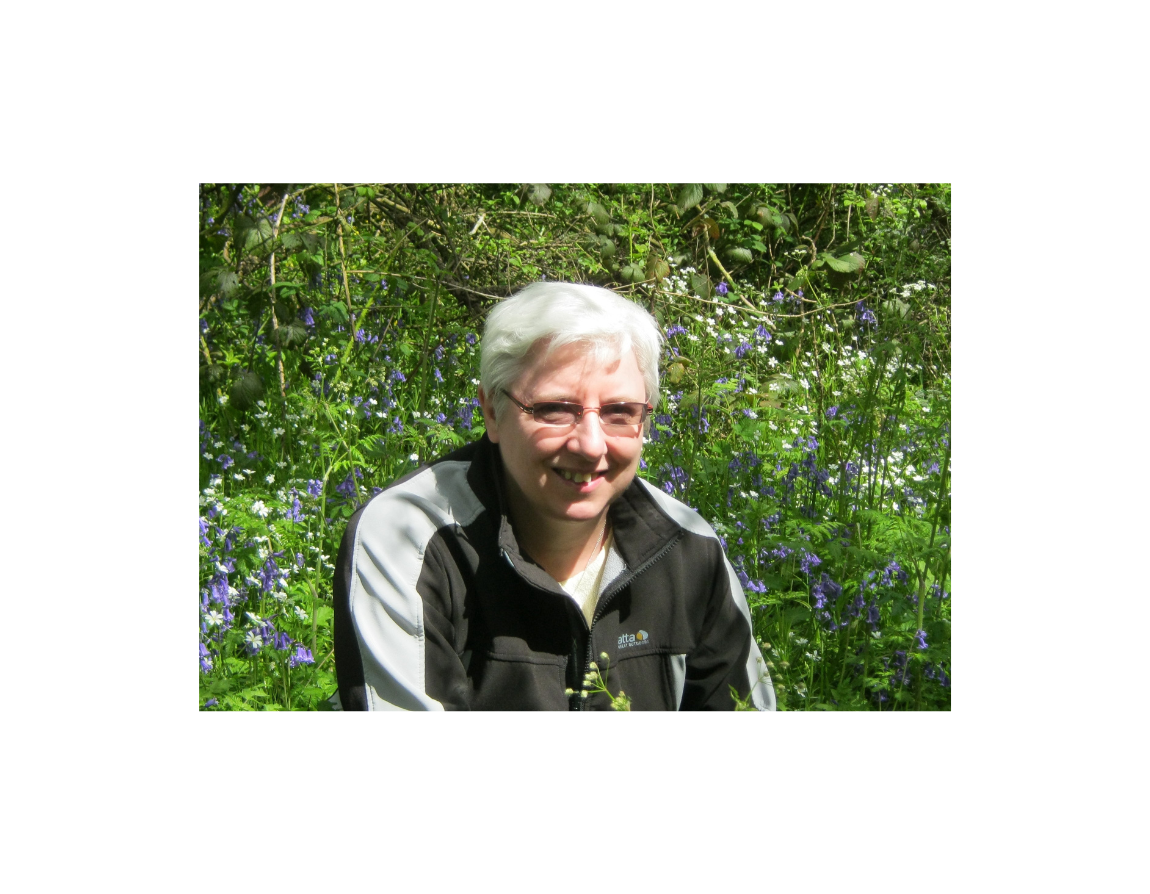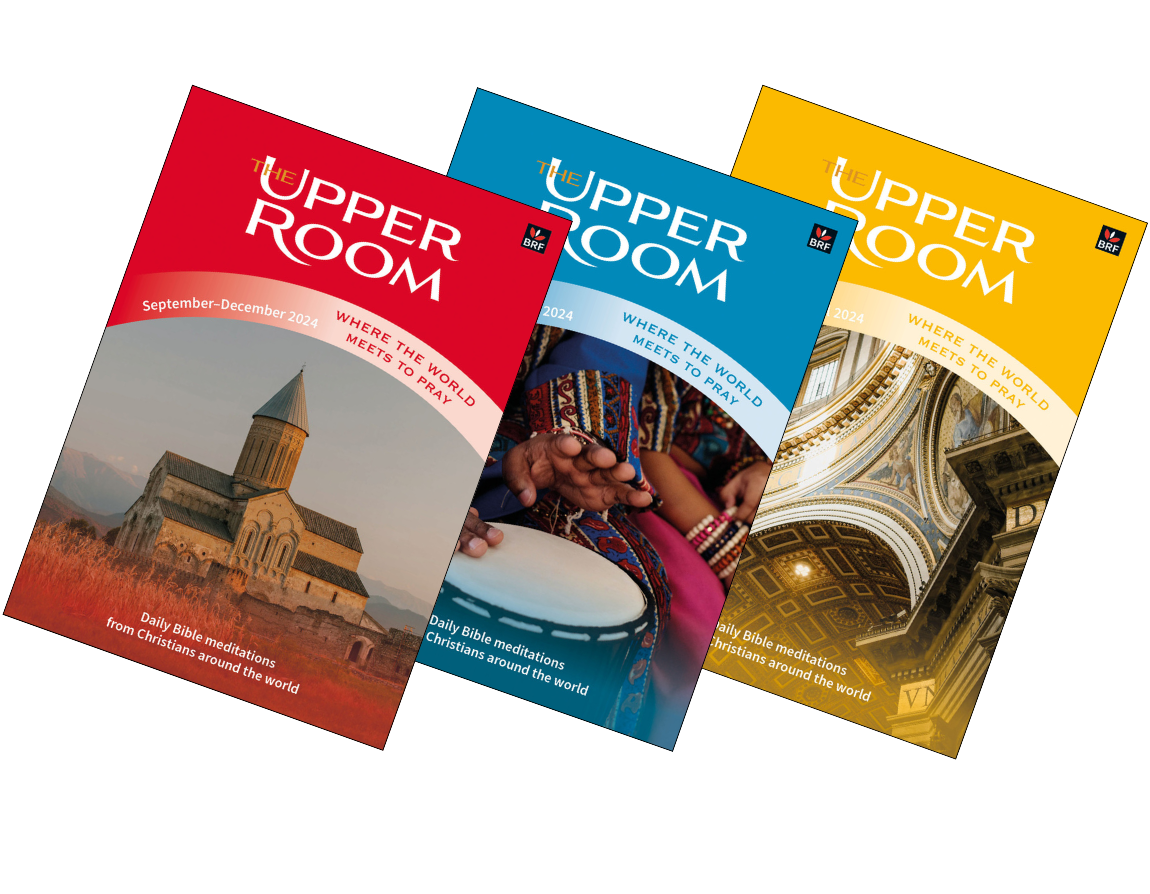Do you feel a longing to write but lack the confidence to get started? Or do you keep your writing hidden away, anxious about how it will be received? This bank holiday week, with maybe a little more free time than usual, why not take inspiration from April McIntyre, whose reflection ‘Piglet’ was one of the winning entries in our recent writing competition for The Upper Room.
26 May 2024
A word person
I find it hard to call myself a writer. Bulky manuscripts tied with ribbon, feverish negotiations with publishers, book signings, fame and, perhaps, fortune have little to do with my quiet life and scribbling. Yet I have always been a word person, reading voraciously, composing little stories and rhyming verses from an early age and, later, discovering a gift for literary criticism which led me to study English literature and then complete a PhD. During my time at university, I kept the gremlins of anxiety at bay by writing long letters home: spontaneous, personal letters, full of new experiences, feelings and struggles, with little regard for spelling or grammar!
I became a Christian around age 16, when I first realised that Jesus Christ was more than an historical or mythical figure. I encountered him as the suffering Saviour but also as a friend I would travel with throughout the twists and turns of my life. Away from home, my faith grew, inspired by local student groups, churches and events, and instinctively I began to write my own psalms, poems and prayers. Occasionally I would send one of these in a letter to my mother only to find, when I returned home, that she had read it to many of her friends from church.

Bulky manuscripts tied with ribbon, feverish negotiations with publishers, book signings, fame and, perhaps, fortune have little to do with my quiet life and scribbling.
A tiny spark
It was much later, now married and settled in Derby and in the middle of training as an Anglican lay minister (reader), that something significant happened. We had been given an assignment to write on the doctrine of the Holy Spirit. This included writing a short piece for a parish magazine. I really enjoyed putting together this simple, explanatory article, using clear section headings, everyday analogies and liberal sprinklings of clip art. ‘Just a bit of fun,’ I thought, until my marked assignment was returned. The assessor’s comments were very positive and he concluded by saying that, when licensed, I should make sure I used my talents to write for a parish magazine, website or, perhaps, for the diocese. This was the tiny spark that illuminated a new phase of my journey.
Derby diocese sponsors a weekly column called ‘Faith files’, in the Saturday edition of our local newspaper. Various writers, lay and ordained, take it in turns to write about current issues, church celebrations and outreach, or personal spirituality. Back in 2008, I joined this team and found it an excellent discipline, writing in a way appropriate for a wide range of readers, with or without a faith, and working to a word count of under 300 words. This forced me to tighten my prose, avoid Christian clichés and jargon and edit ruthlessly. Occasionally someone might mention that they had seen my piece in the paper but feedback was minimal. It was like scattering seeds in the darkness, trusting that the Holy Spirit would blow a few to fertile ground where someone was in need of encouragement.

This forced me to tighten my prose, avoid Christian clichés and jargon and edit ruthlessly.
Embrace the unexpected
On one occasion, I received an email from a friend. Her father (not a church-goer) had been reading his Derby Telegraph and come across my reflection about St Teresa of Ávila’s famous bookmark prayer. I had introduced this by describing the pleasures of opening up old books, never knowing what you might discover tucked inside, from pressed flowers to concert tickets or old photographs. The father read the piece to his daughter over the phone, saying how moving he had found it. It turned out that he had recently lost his wife. Now, he and his daughter had to face sorting through the wife’s things, particularly her books. Suddenly, a task they had been dreading was transformed into a treasure hunt, connecting them with happier memories.
Through this experience, I began to see that God often works in ways we least expect. Here it was not the ‘religious’ part of the reflection but the initial scene-setting that helped father and daughter take a step towards healing.

It was not the ‘religious’ part of the reflection but the initial scene-setting that helped father and daughter take a step towards healing.
Accept opportunities
In 2008, I also signed up to be a book reviewer for the magazine of the Central Readers’ Council, now called Transforming Ministry. This meant receiving several brand new Christian books each year and writing reviews that would be relevant and helpful for lay readers. The word count for this was very tight but, drawing on skills from my old academic training, I was able to produce some interesting analyses on a wide range of topics.
In 2017, I joined Café Writers, a Christian writers’ group in Derby, affiliated to the Association of Christian Writers (ACW). My last few years had not been easy, owing to ongoing health issues, medication changes and just getting older. I found it hard to concentrate, to process thoughts and speak to others. I was often frustrated and depressed. My old spontaneity in talking to God and journalling my thoughts had virtually dried up. Writing sermons and articles took so much longer, as if every word had to be wrenched out screaming.
The new Café Writers group came along at exactly the right time for me, providing inspiration and encouragement to experiment with different styles of writing. We had ‘homework’ to play around with and opportunities to share what we produced with others. I really enjoyed this. I could see by peoples’ reactions that there was merit in my writing and they weren’t just being ‘kind’, and I began to relax and feel I had a contribution to make. I owe a great debt of thanks to our resourceful and committed leaders.

I could see that there was merit in my writing, and I began to relax and feel I had a contribution to make.
Working in miniature
As I write today, I still don’t find it easy but I am happy to work in miniature: writing short reflections, prayers and poems along with the odd sermon or book review. I write a regular column called ‘Still space’ in our monthly church/village magazine, reflecting on how we can experience God’s presence through the changing seasons, the church year and everyday life. This is something I was able to continue throughout the Covid lockdowns of 2020–21, reaching out to those stuck at home, separated from family, activities and worship.
My journey continues onwards, taking me beyond parish and diocese into a wider world. I have written pieces for the ACW Lent and Christmas anthologies, some longer articles for magazines and other reflections for The Upper Room. I’m now working on a series for Bible Reflections for Older People. Who knows where this path is leading?
It is a great blessing to write as a form of therapeutic self-expression, but what a privilege when we can share the treasures of God’s word and world with others, however we do that. Such gifts must be held lightly, even as we work hard to hone our skills, for we cannot possess, only use them. As we stare at another blank piece of paper or empty computer screen, we are reminded that God’s grace is sufficient for us because it is in our weakness that the nature of his power is revealed (2 Corinthians 12:9).
This article was first published in the Association of Christian Writers’ book, Write Well, compiled by Amy Scott Robinson (Instant Apostle, 2021).


